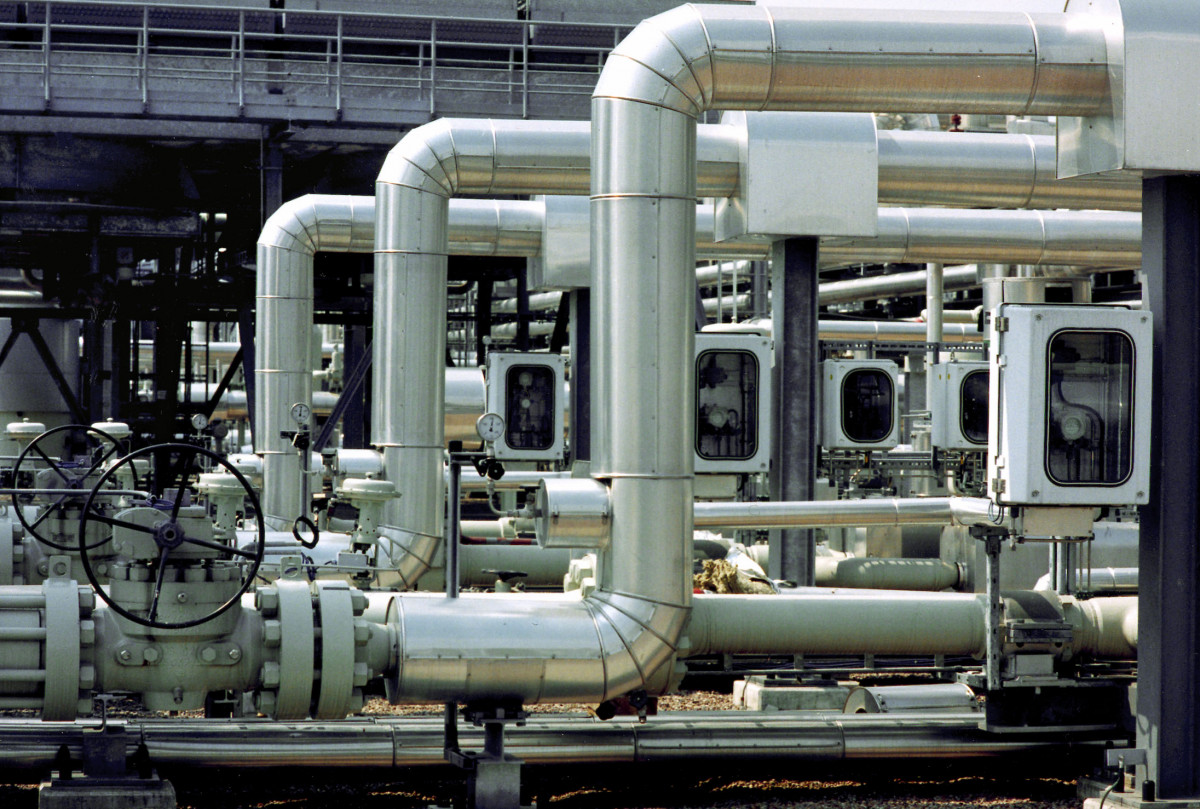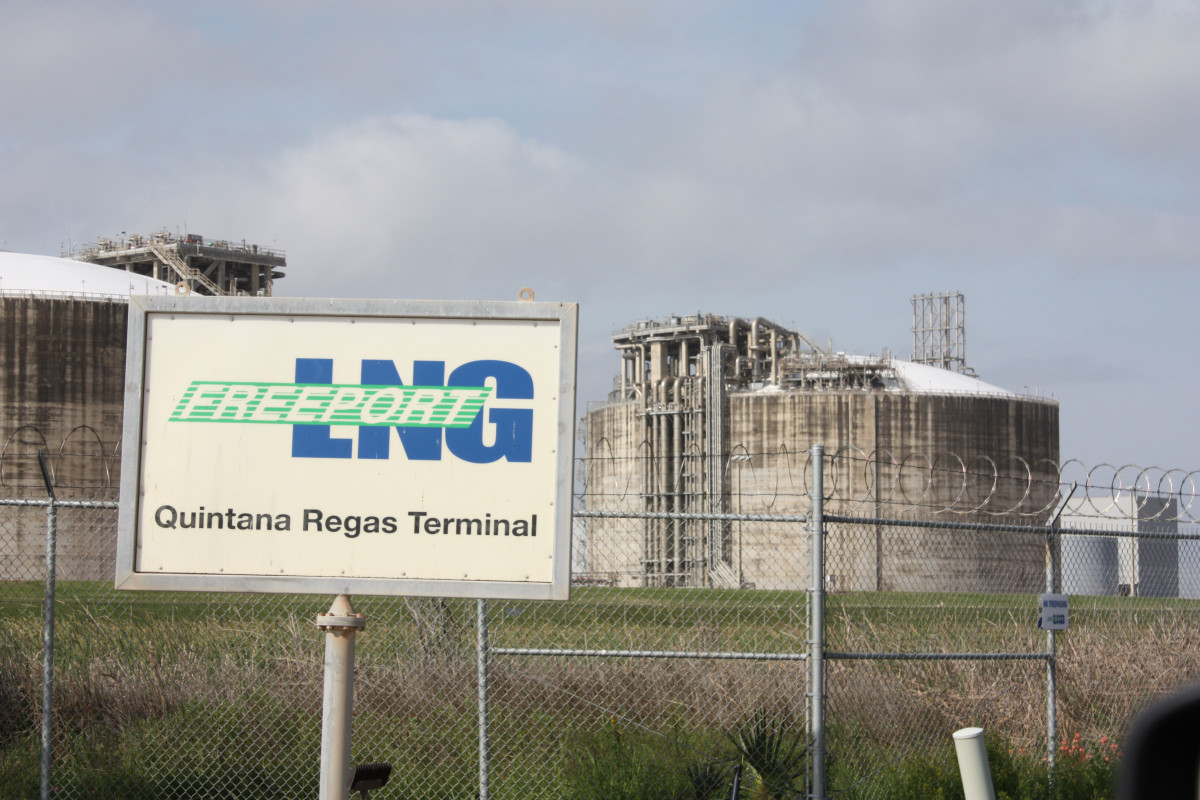Gazprom announcement to reduce Nord Stream gas flows "political decision" - econ min
An announcement by Russia’s Gazprom to reduce natural gas supplies to Germany via the Nord Stream offshore pipeline has led to fears that Moscow could decide to use the fossil fuel to put its biggest European customer under pressure in response to western sanctions. German economy minister Robert Habeck said Gazprom's move could be a "political decision".
The state-owned gas company on Tuesday (14 June) said that gas flows through the most important pipeline to western Europe would be reduced by about 40 percent with immediate effect, citing a “failure” by German engineering company Siemens to provide required technical assistance on time as the reason for the restriction of supply. About 100 million cubic metres of gas per day could currently be transferred through the pipeline under the Baltic Sea, while the planned daily volume would be 167 billion cubic metres, Gazprom said.
Siemens Energy largely confirmed Gazprom’s account to the New York Times. It said in a statement that it had overhauled a turbine at a specialist facility in Montreal but that it was “currently impossible” to return it to Gazprom “due to the sanctions imposed by Canada.”
However, German economy minister Robert Habeck said the equipment did not fall under sanctions and that he had notified Siemens Energy of this. At a press conference in Berlin, Habeck added that to his knowledge the first maintenance tranche where this could have even led to a problem would be in autumn, and that Gazprom's account also did not sufficiently explain why supply was decreased by 40 percent right now.
"In my estimation, this is a political decision" by Russia, said Habeck. Blaming reduced flows on technical failure would merely be a pretext used by Russia to drive up gas prices. “That’s obviously the strategy here." The minister said the volumes lost through Nord Stream could be replaced with other sources at the moment, although at high prices. Gas storages would continue to be filled. “But we’re monitoring things closely,“ he said. Habeck added an appeal that gas savings would be “the order of the day” and said the state would “of course” intervene as soon as this becomes necessary.
The Federal Network Agency (BNetzA) said it is monitoring the situation very closely. "The full facts and possible effects of the declining flows from Nord Stream 1 are being further examined," they write in an updated status report on Germany's gas supplies. The agency confirmed that supply through Nord Stream had dropped to below 60 percent but does not drop any further "at the moment." The BNetzA said it could not confirm a "causal connection" between the lacking gas compressor unit and reduced quantities.
Germany aims to fill gas storages almost completely before end of year
Gas prizes on European markets surged in an immediate reaction to Gazprom’s announcement. Already on Monday (13 June), the head of the BNetzA, Klaus Müller, had said that gas flows through the pipeline would be suspended for about two weeks in mid-July due to annual maintenance works.
Gazprom said Siemens had failed to return a gas compressor unit from repair, which would compel the Russian company to reduce flows already now. It did not specify for how long deliveries would be reduced. Germany’s economy and climate ministry (BMWK) on Tuesday said the reduced supply through Nord Stream 1 would not immediately put supply security in danger. “For the time being, supply security is guaranteed,” the ministry said in a written statement.
Nord Stream, which opened in 2011, is the most important pipeline for Russian gas to the EU. It supplied nearly 60 billion cubic metres of gas in 2021, according to the operator. Reduced flows through the pipeline under the Baltic Sea could become a problem for Germany’s goal to fill its gas storages by at least 80 percent by October and 90 percent by November under a recently adopted regulation to prepare the country for possible disruptions in gas trading during winter, when demand is much higher. In mid-June, storage levels stood at about 55 percent, the network agency BNetzA said.
Russia already cut down deliveries via its Yamal pipeline through Poland and has also throttled flows through pipelines further south through Ukraine. The start of operations of the nearly finished offshore pipeline Nord Stream 2, which runs parallel to its precursor, has been delayed indefinitely due to Russia’s invasion of Ukraine.
Germany like the rest of Europe is working to reduce its reliance from Russia as fast as possible, though the German government so far expects to largely replace Russian gas only by 2024. The country is also under pressure to move much faster in order to end the flow of billions of euros in payments to Russia, even if that means a severe economic hit.
Fire in U.S. LNG export facility adds to supply concerns
In addition to the Nord Stream supply issues, an incident at an LNG export terminal in the United States is adding to concerns in Europe and Germany. A fire at the Freeport LNG terminal in Texas on June 8 prompted an immediate shutdown of the facility's three liquefaction trains. The damage would keep the plant fully offline until September with only partial operation through year-end, raising the risk of gas shortages in Europe, reported Reuters. Analysts said that around 70 percent of Freeport monthly supplies in the past few months went to the European Union and Britain.



